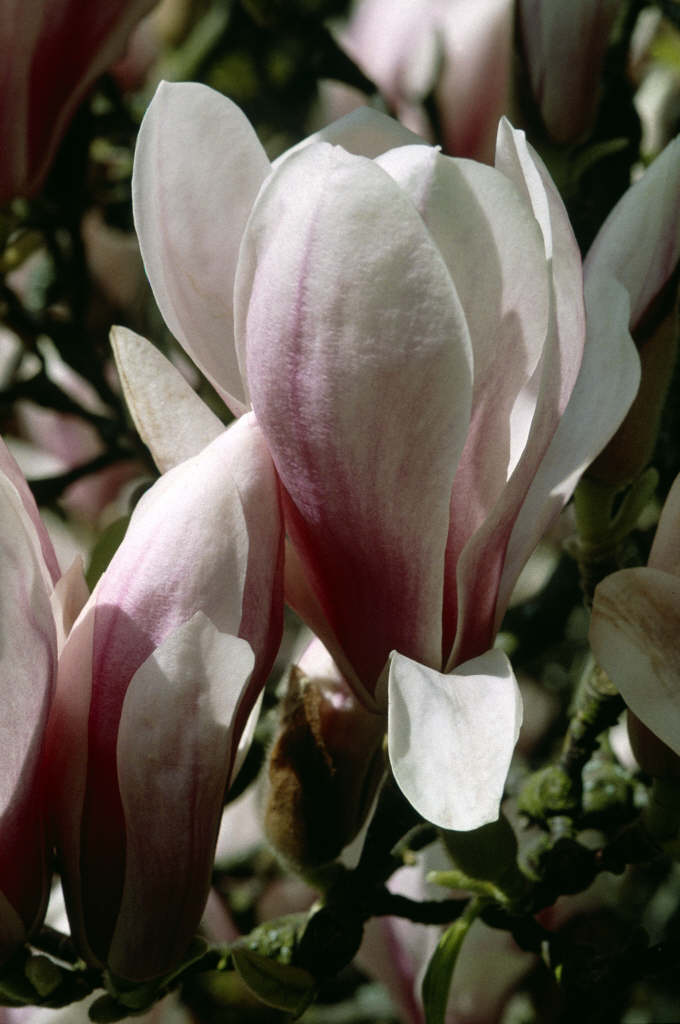Magnolia × soulangeana
saucer magnolia
A spreading deciduous tree or large shrub to 6m tall, with obovate dark green leaves to 20cm long, and large, white, pink or purple, goblet-shaped flowers up to 25cm across in mid and late spring, before and with the young leaves
Size
Ultimate height
4–8 metresTime to ultimate height
10–20 yearsUltimate spread
4–8 metresGrowing conditions
Moisture
Moist but well–drainedpH
Acid, NeutralColour & scent
| Stem | Flower | Foliage | Fruit | |
| Spring | Pink Purple White | Green | ||
|---|---|---|---|---|
| Summer | Green | |||
| Autumn | Green | |||
| Winter |
Position
- Full sun
- Partial shade
Aspect
West–facing or South–facing or East–facing
Exposure
Sheltered Hardiness
H6Botanical details
- Family
- Magnoliaceae
- Native to GB / Ireland
- No
- Foliage
- Deciduous
- Habit
- Bushy
- Genus
Magnolia can be deciduous or evergreen trees or shrubs, with large, showy, often fragrant flowers, often opening before the leaves, and sometimes followed by colourful cone-like fruit
- Name status
Correct
How to grow
Cultivation
Grow in moist but well-drained neutral to acid soil in full sun or part shade with shelter from cold winds. Late frosts may damage flower buds. Further magnolia cultivation advice
Propagation
Propagate by seed in autumn and spring, by softwood cuttings from late spring to early summer or semi-ripe cuttings from late summer to autumn
Suggested planting locations and garden types
- Cottage and informal garden
- City and courtyard gardens
- Flower borders and beds
Pruning
Minimal pruning required, see magnolia pruning. Deciduous magnolias should only be pruned between midsummer and early autumn
Pests
May be susceptible to scale insects, horse chestnut scale and capsid bug
Diseases
May be susceptible to coral spot, phytophthora, grey moulds, honey fungus, a virus or fungal leaf spot
Get involved
The RHS is the UK’s gardening charity, helping people and plants to grow - nurturing a healthier, happier world, one person and one plant at a time.
